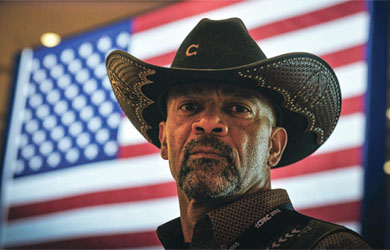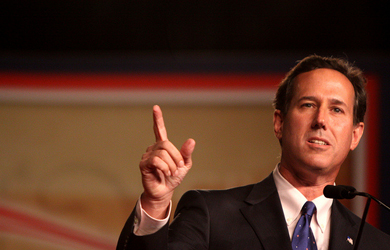In February, Attorney General Alberto Gonzales unveiled what he called the First Freedom Project, to expand on the Justice Department’s “extensive record of achievement” in the area of “religious freedom laws.” Gonzales described the department’s work on religion as “a legacy of protection unequaled since the passage of the Civil Rights Act of 1964.” Even more remarkable than that startling comparison, however, was Gonzales’s choice of venue: a meeting of the Southern Baptist Convention Executive Committee. According to the Baptist Press, Gonzales requested to speak at the meeting “because he knew he would be speaking to a receptive audience.” Indeed, the famously right-wing SBC has been a strong supporter of the Bush administration, including its judicial nominees.
The Religious Right saw the Justice Department’s new focus as a validation of its world-view of Christians being persecuted in the U.S.: “The fact that the Justice Department finds it necessary to launch such a project further confirms what we’ve been aware of for years: our nation’s First Liberty–religious freedom–is in serious danger because of decades of sustained attacks by the ACLU and its allies,” said Alan Sears, president of the Alliance Defense Fund.
Now the New York Times is reporting that the department’s emphasis on religious liberty is part of its controversial reorganization under the Bush Administration that has led to a diminished role for traditional civil rights enforcement based on racial discrimination and voter suppression, and a more ideological and politicized staff, such as Monica Goodling, a graduate of Pat Robertson’s law school.
The shift at the Justice Department has significantly altered the government’s civil rights mission, said Brian K. Landsberg, a law professor at the University of the Pacific and a former Justice Department lawyer under both Republican and Democratic administrations.
“Not until recently has anyone in the department considered religious discrimination such a high priority,” Professor Landsberg said. “No one had ever considered it to be of the same magnitude as race or national origin.” …
Some critics say that many of the Justice Department’s religious-oriented initiatives are outside its mandate from Congress. While statutes prohibit religious discrimination in areas like employment and housing, no laws address some of the issues in which the department has become involved. … The department has … challenged so-called Blaine amendments, which are state constitutional provisions enforcing separation of church and state more rigidly than does the United States Constitution. The federal government sued because the amendments could impede Mr. Bush’s religion-based initiative, which provides money to religious groups for social programs.







